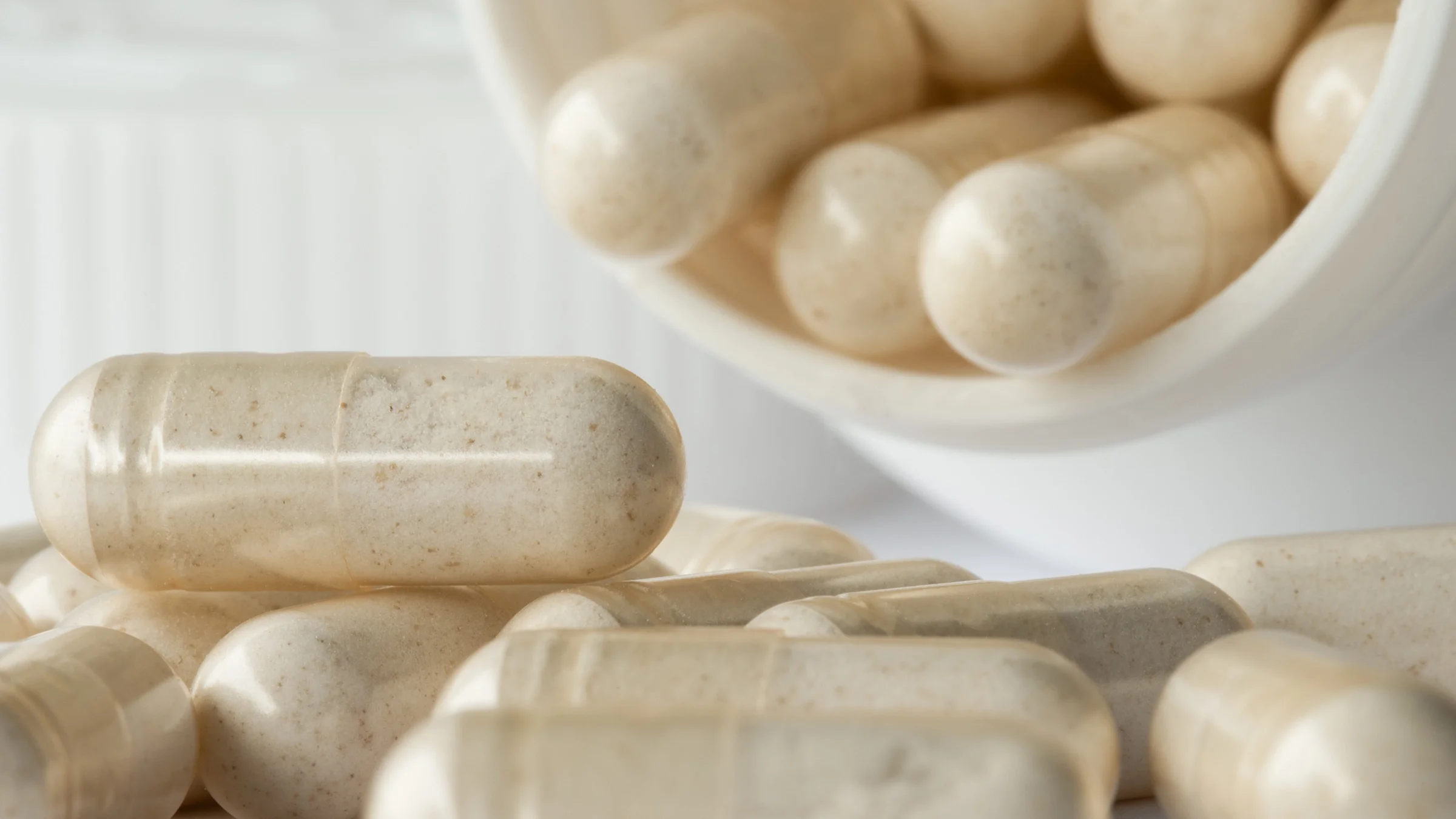Key takeaways:
Probiotic supplements may decrease a child’s risk of developing eczema.
Probiotic supplements haven’t been shown to prevent food allergies or asthma.
They’re safe for most children and have other health benefits. Some parents use them for allergy prevention, even though the research isn’t definitive.
Allergies have been on the rise over the last couple of decades. And they can be life-threatening. So, it's natural to look for ways to keep your child from developing allergies.
Enter probiotics: These bacteria and yeast live in the gut and have a wide range of health benefits. Probiotics occur naturally in foods and are available as pill and powder supplements. There’s some evidence that probiotic supplements can help kids avoid allergic conditions.
Here’s everything you need to know about probiotics for allergies.
Search and compare options
Can probiotics prevent children from developing allergies?
Not exactly. There’s evidence that probiotics may lower a child’s risk of developing eczema, which is an allergic skin condition.
But the research isn’t a slam dunk about other allergic conditions like seasonal allergies and food allergies. Some studies showed that children who took probiotics were less likely to develop allergic conditions. But other studies showed no difference.
When results differ like this, experts review all studies. They try to decide whether one set of studies is more valid than another. In this case, the studies were too different for experts to compare.
So, even world experts on allergies have differing opinions on probiotics and allergies.
Some experts don’t oppose probiotics, especially for infants at higher risk of allergies. This includes infants with a first-degree relative (like a sibling, parent, or donor) who has:
Asthma
Seasonal allergies
Eczema
Food allergies
Read more like this
Explore these related articles, suggested for readers like you.
The National Institute of Allergy and Infectious Diseases (NIAID) notes that probiotics may lower a child’s risk of developing eczema. The institute even goes so far as to point out that probiotics might even help improve eczema symptoms in kids who already have the condition. But it stops short of recommending that kids take probiotics to prevent or treat eczema.
Other experts don't recommend giving children probiotics, even if they have family members with a history of allergies.
When should children start taking probiotics to prevent allergies?
The World Health Organization (WHO) notes that infants should start taking probiotics when they’re still young to lower their risk of developing eczema. That’s because animal studies show probiotics don’t prevent allergies when animals get older.
But these experts are quick to point out that there’s no clear answer on when to start probiotics to prevent eczema. In general, it’s a good idea to hold off on starting probiotic supplements until a baby is at least 2 months old. This gives the baby’s immune system time to fully develop.
However, it’s important to point out that infant formula with probiotics is safe to use as soon as your child is born.
It’s also not clear how long infants should take probiotics to prevent eczema. In most studies, infants stopped taking probiotics between the time they were 6 and 24 months old. But again, there are no recommendations on when you should stop giving your infant probiotics once you’ve started.
Which probiotics are best for allergies?
The three best-studied probiotics for allergies are:
Bifidobacterium
Lactobacillus
Saccharomyces
Each of these probiotics has various strains.
Most probiotic supplements and infant formulas contain a mix of these probiotics. Studies on probiotics for allergy prevention often use a combination of these probiotics. So, it’s not clear if one family or strain will work better than another. There’s also guidance from experts about the best dose for children.
Talk to your child’s pediatrician to make sure the probiotic you pick is safe for children. If your child is using a formula with probiotics, you can rest assured that the FDA has reviewed it and it’s safe to use.
Is it safe for children to take probiotics?
Probiotic supplements are safe for most infants over 2 months old and young children. Probiotics that are added to infant formula are safe for most newborns and young babies.
If your child was born with a weakened immune system, talk to your child’s primary care provider. Probiotics may not be safe for children with immune conditions. If your child was born prematurely, check with your healthcare team to make sure it’s safe for your child to take probiotics.
While the research on probiotics and allergy prevention isn’t clear, many experts don’t discourage parents and caregivers from trying them. That’s because probiotics are generally safe for most children and don’t cause many side effects.
Probiotics might not help every child avoid allergies. But they may keep some children from developing allergic conditions.
Keep these pros and cons in mind as you decide about whether to try probiotic supplements.
The bottom line
Probiotics are bacteria and yeast that are available as dietary supplements. They’re also added to many infant formulas. Infants who take probiotics may be less likely to develop eczema later in life.
It’s not clear whether probiotics can lower a child’s risk of developing food allergies or asthma. Probiotics are safe for most children and have very few side effects. Most experts don’t discourage parents and caregivers from trying them.

Why trust our experts?


References
Fiocchi, A., et al. (2015). World Allergy Organization-McMaster University guidelines for allergic disease prevention (GLAD-P): Probiotics. World Allergy Organization Journal.
HealthyChildren.org (2021). Probiotics in infant formula. American Academy of Pediatrics.
Muraro, A., et al. (2014). EAACI food allergy and anaphylaxis guidelines. Primary prevention of food allergy. Allergy.
Office of Dietary Supplements. (2023). Probiotics: Fact sheet for health professionals. National Institutes of Health.
Sudo, N., et al. (1997). The requirement of intestinal bacterial flora for the development of an IgE production system fully susceptible to oral tolerance induction. Journal of Immunology.
Thomas, D. W., et al. (2010). Probiotics and prebiotics in pediatrics. Pediatrics.
U.S. Food & Drug Administration. (2023). Questions & answers for consumers concerning infant formula.


















